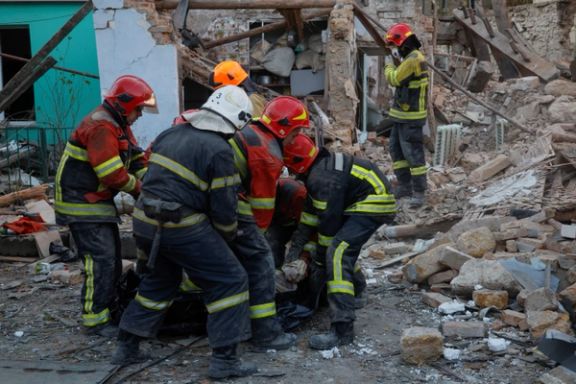Iran-Russia ‘Relationship Of Convenience’ May Redraw Regional Alliances

Tehran is preparing the dispatch of surface-to-surface missiles to Russia for use in Ukraine, CNN said Tuesday, citing “officials from a western country.”

Tehran is preparing the dispatch of surface-to-surface missiles to Russia for use in Ukraine, CNN said Tuesday, citing “officials from a western country.”
CNN described the shipment as the “first instance of Iran sending advanced precision guided missiles to Russia.” It suggested the weapons “could give the Kremlin a substantial boost on the battlefield.”
A senior US defense official said Monday that Washington had no information of Iran preparing to send the missiles. The Washington Post had reported Monday that Tehran planned to send missiles as well as additional military drones.
Robert Malley, the US Iran envoy, on Monday repeated US insistence that Tehran had sent UAVs (unmanned aerial vehicles), saying “those drones have been used to target civilians and civilian infrastructure” in Ukraine while Iran “in the face of all of this evidence, keeps lying and denying that it’s happening.”
The Post suggested that a “relationship of convenience” between Russia and Iran could “redraw regional alliances for decades to come” and that Tehran’s alleged arms sales to Moscow marked “a seismic shift,” while “fears of a new world war have never been greater.”
The newspaper traced Iranian-Russian military cooperation back to fighting to save President Bashar al-Assad in Syria, when their coordinated intervention enabled Assad by 2016 to begin regaining territory from opposition forces, including both the Islamic State group (Daesh) and the US-backed mainly Sunni Free Syrian Army.

But the Post also noted Moscow’s vote December 2006 at the United Nations Security Council to impose sanctions on Iran over its nuclear program, and the two states’ current rivalry over selling oil to China. It attributed today’s closer Tehran-Moscow relationship to shared experience of US and European sanctions.
Intense use of UAVs
With Ukraine deploying drones supplied by the US and Turkey to defend against the Russian invasion, the use of UAVs has been more intense than in many recent conflicts, due in part to drones’ relatively low costs and ability to breach defense systems designed to stop missiles.
But Iran’s large scale export of missiles and drones is seen by the West as a dangerous turn of events because Tehran could use future opportunities to arm countries opposed to NATO or the United States
Russia Saturday suspended a UN-brokered arrangement allowing grain shipments through the black sea after a drone attack on at least one Russian warship near Sebastopol. Moscow said the strike had been planned with British involvement. The UN initiative facilitates the export of both grain and fertilizer, especially to Africa and the Middle East.
An additional $275-million US military package announced by the Pentagon Friday was smaller than earlier packages, with disquiet in the Republican Party shown in objections to plans to fund Ukraine with seized Russian assets.
The British defense ministry said Friday Moscow had adopted a “long-term, defensive posture,” while Vitali Klitschko, Kyiv mayor, said people would freeze to death if western counties did not supply blankets and generators. Associated Press reported Monday that Russia was hiring US-trained Afghan special forces to fight in Ukraine.